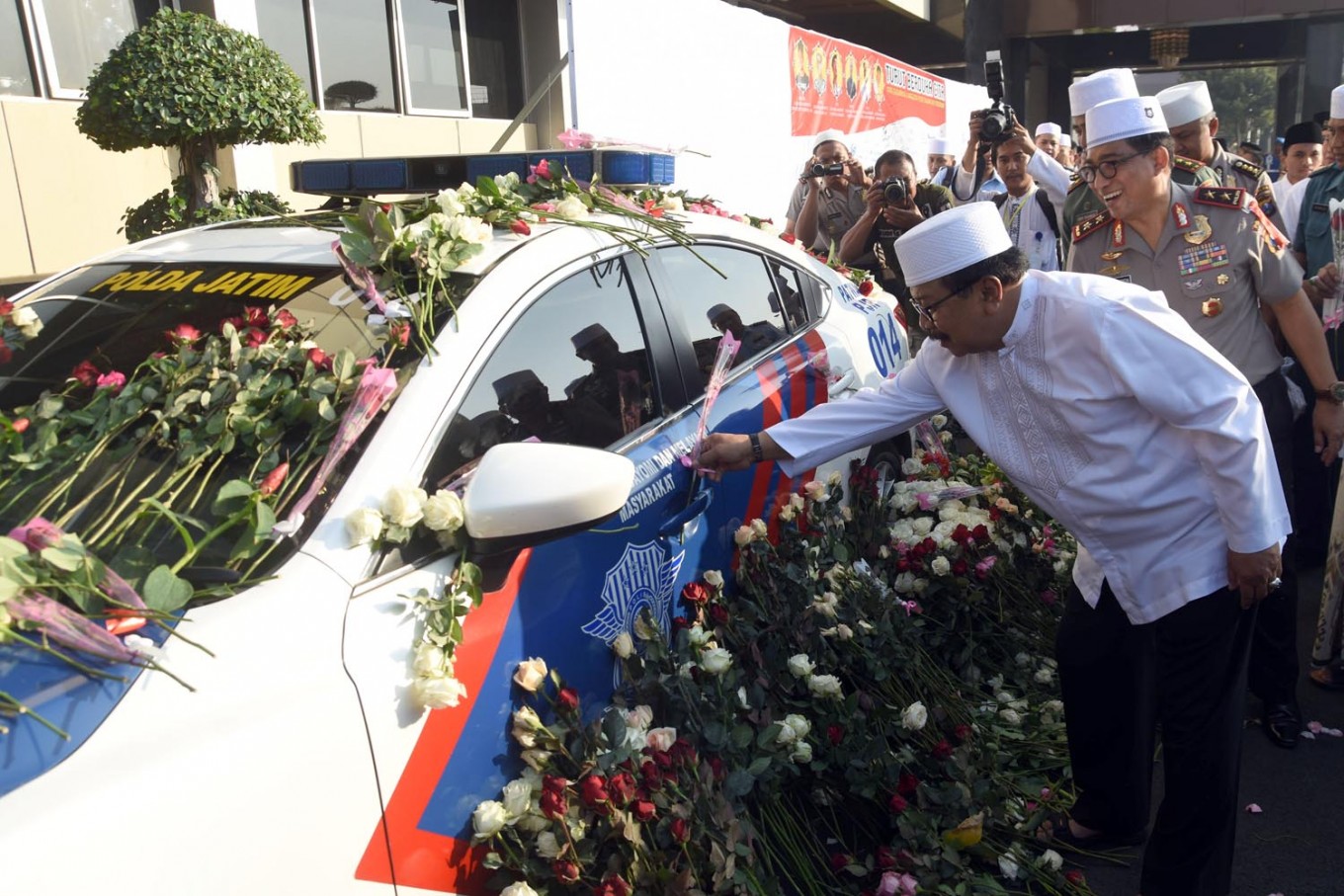Popular Reads
Top Results
Can't find what you're looking for?
View all search resultsPopular Reads
Top Results
Can't find what you're looking for?
View all search resultsCall to evaluate ways we practice Islam
We should never deny the terrorists’ Muslim-ness. They are and were Muslims, and there is no question about it.
Change text size
Gift Premium Articles
to Anyone
E
xplosions of religious-based violence as happened at the Mobile Brigade headquarters (Mako Brimob) detention center in Depok, West Java, and three churches in Surabaya were not one-time events with no connection with our daily consumption of violence.
Such explosions happened because we have normalized religious discrimination through our TV programs, the preachers we listen to and the arrogance of Muslim vigilante groups that raid open eateries during Ramadan. This strain of religious violence is in our political campaigns, our commercial products and our consumerist activities. In a nutshell, we devour violence.
Many things have been said about the factors that contribute to the acts of terrorism in Indonesia, the country with the world’s largest Muslim population. However, a bigger issue is how we Indonesian Muslims should appropriately respond to the violence.
First, we should never deny the terrorists’ Muslim-ness. They are and were Muslims, and there is no question about it. Any denial will exacerbate violence because it produces a delusion of innocence on the part of Indonesian Muslims who were not directly involved in the attacks.
While it is important to avoid generalization that Muslims are terrorists, systemic religious discrimination that religious minorities suffer in Indonesia is nevertheless a product of Muslim majority participation in the alienation of followers of other religions.
Moreover, with the trending sharia-inspired lifestyle that often excludes those deemed “non-Muslim”, Indonesian Muslims are collectively contributing to the formation of an environment in which the violent intents of Muslim terrorists are justified.
Read also: What is JAD? Terror group behind Mako Brimob riot, Surabaya bombings
Second, never isolate religious violence from its racial undertones. In the context of Indonesia, the anti-Christian hatred among Muslims is laced with anti-Chinese sentiment that associates a specific ethnicity (Chinese-Indonesian) with a specific religion (Christianity).
Hence, in this case we need a multi-faceted solution that is directed toward the religious bigotry and ethnic racism within the problem.
In other words, the anti-Christian hatred will not be solved if we only approach it as an interreligious issue. The anti-Christian hatred also has to be dealt with as an issue of ethnic racism.
At this point, making a negative proposal by saying what not to do is far from enough. Therefore, we Indonesian Muslims also need to take a long overdue proactive approach in dealing with religious terrorism which, in Indonesia, is most often perpetrated by Muslims.
What we should do is to push Indonesian mainstream Muslim clerics to conduct a comprehensive juridical overhaul of parts of the Islamic juridical tradition that can justify the killing of innocent people. We cannot deny that these terrorists have used religious justification such as jihad to kill others.
Thus, any part of man-made fiqh (Islamic jurisprudence) that has the potential to justify such an attack needs to be obliterated altogether. It is not enough to just say that acts of terrorism are not a part of Islam. We have to make sure that the ways we practice our religion do not become a breeding ground for perspectives that dehumanize religious others.
We should also make an effort to rejuvenate interreligious relations and internalize them within our daily lives. Weaving interreligious relations is way more important in the context of a pluralistic Indonesia. Strengthening interreligious relations is an obligation stipulated in the Quran (verses 2:256, 2:62, 41:34, among other verses).
Thus, mainstream ulemas also have to place an emphasis on building interreligious relations by condemning violence and hate speech that is delivered through political campaigns, mosque pulpits and television programs. Likewise, the media need to stop pandering to the despicable tendency of many Muslims who consume narratives of religious discrimination as a way to “strengthen” their faith.
We all need to work together to craft a multidimensional solution to address the Muslim terrorists’ violence. However, in this context, we cannot deny that the responsibility of Indonesian Muslims as the religious majority of the country is bigger than the rest of us.
The Indonesian Muslim community needs to stop supporting religious discrimination as a way of expressing their faith. We cannot continue to prove we are great Muslims by loudly condemning other religions. To accomplish this, our mainstream ulemas need to overhaul the Islamic jurisprudence and replace it with religious edicts that emphasize interreligious relations.
In other words, Indonesia will always be prone to the terrorist propaganda of, among others, Jamaah Ansar al-Daulah (JAD) and Jamaah Ansar al-Tauhid (JAT), as long as we Indonesian Muslims do not change the ways we express our faith.
***
The writer, a PhD student at the University of Notre Dame, Indiana, is researching Islamic and Christian feminist theologies.











